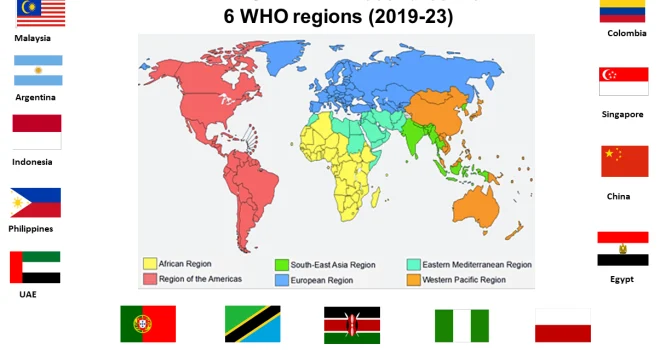This is a statement made at the 30th Pan American Sanitary Conference and 74th Session of the Regional Committee.
Honorable Chair, Distinguished Guests,
On behalf of the World Heart Federation, the American Heart Association, the Interamerican Society of Cardiology, the Coalition for Americas’ Health, the NCD Alliance, and the Taskforce on Women and NCDs, we applaud the Pan American Health Organization for their commitment to building a strategic framework that transforms health systems and their capacity to achieve the Sustainable Development Goals.
As organizations committed to addressing the burden of NCDs, we know reducing premature deaths requires delivering more and better-quality care that is reflected on a country’s national health plans and budgets. COVID-19 made clear that those with a chronic condition(s) are significantly more susceptible to severe illness and death. We cannot afford to relive the loss of life many in this room have faced because our health systems were ill-equipped.
Multimorbidity has become the norm rather than the exception. We commend the call for integration at all levels supported by strong surveillance systems that avail real time information to track and monitor emerging public health threats. The most vulnerable among us —the person with a pre-existing condition, the poor, the health care workforce, specifically the disproportionate number of women on the frontlines— will be most impacted if we do not prepare today for the threat of tomorrow.
We call for Member States to:
- Ensure access to medications specifically for vulnerable populations by analyzing the roadblocks and addressing them.
- Collaborate across key Ministries including Finance, Education, and others.
- Accelerate the adoption of evidence-based policies and programs such as the HEARTS initiative and the PEN-Plus Strategy that seeks to address severe diseases such as sickle cell disease and rheumatic heart disease through an integrated, outpatient model at first-referral levels.
- Systematically screen and treat pregnant women to better identify who may be at increased risk of Type 2 diabetes and CVD.
- Support the expansion of health care teams, so that pharmacists, nurses, and other allied professionals can provide important patient care and medicines while supervised by physicians.
Universal health coverage will only be realized when a health system can detect and treat leading risk factors associated with NCDs, when it continues to provide important maternal and child health, and when country leadership adopts evidence based public health measures that create healthier communities. Our time is now.
Thank you.


